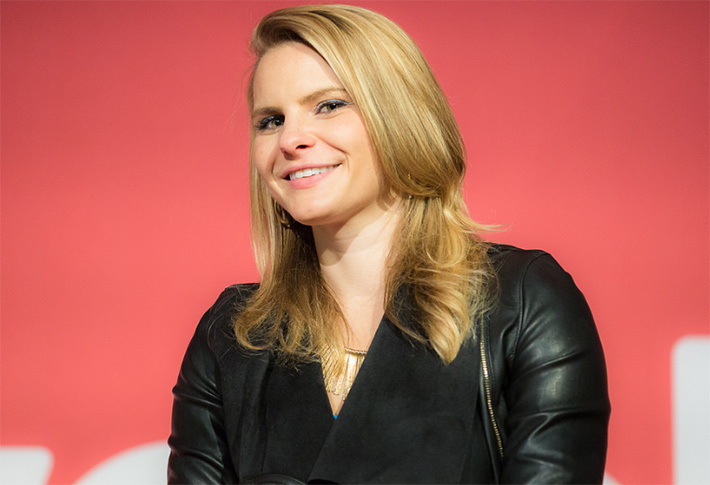Michele Romanow on Clearbanc’s Recent $300M Series B
 Last week Clearbanc announced it had secured $300 million in a Series B. Specializing in the provision of capital to business owners for the purchasing of ads on digital platforms such as Facebook and Instagram, the company operates in an untapped niche. Alternative financing for the acquirement of a highly specific product, this product being the form of advertising that is currently most wide-spread.
Last week Clearbanc announced it had secured $300 million in a Series B. Specializing in the provision of capital to business owners for the purchasing of ads on digital platforms such as Facebook and Instagram, the company operates in an untapped niche. Alternative financing for the acquirement of a highly specific product, this product being the form of advertising that is currently most wide-spread.
And perhaps this is why the Toronto-based company received an investment of such magnitude for their second round of funding. The signs of success are there: high demand; low supply; and as well as this, there’s a celebrity profile attached to Clearbanc, Dragons’ Den’s Michele Romanow.
Having co-founded the company in 2015, Romanow now acts as its President. Speaking to deBanked recently, the celebrity investor explained how Clearbanc works as well as the what it does differently.
Ultimately, it comes down to two intertwined strategies: focusing on unit economics and having good tech.
“Our core is really understanding what your customer acquiring cost and your product costs are, as well as if you’re making money on each transaction,” explains Romanow. Speaking in straight forward calculations, the dragon states that, at a basic level, Clearbanc will check and find that if it takes $10 to make a product, $10 to buy Facebook ads, and that this leads to $50 in sales, then you have positive unit economics. And that this sort of calculation is what their tech does, just on a much more complex scale.
“We built a machine learning model on a fundamental understanding of what the unit economics of a business were.” A range of financial information is plugged in, “thousands of factors” are accounted for, and an algorithmically approved recommendation is prepared for underwriters.
 Such reliance on tech and number-crunching has produced an unexpected side-effect for Clearbanc. Strict adherence to positive and negative numerical values has steamrolled two potential biases encountered in the finance raising process: location and gender. Romanow jokes about a report showing that just four states received 80% of venture capital in 2018, and nine raised nothing at all, saying that “it’s impossible that there’d be no good entrepreneurs in nine states of America.” Which is partly why Clearbanc has invested in 43 out of 50 so far, each business being greenlighted by their tech. As well as this, the company has funded eight times more women-led businesses than the industry average for venture capital.
Such reliance on tech and number-crunching has produced an unexpected side-effect for Clearbanc. Strict adherence to positive and negative numerical values has steamrolled two potential biases encountered in the finance raising process: location and gender. Romanow jokes about a report showing that just four states received 80% of venture capital in 2018, and nine raised nothing at all, saying that “it’s impossible that there’d be no good entrepreneurs in nine states of America.” Which is partly why Clearbanc has invested in 43 out of 50 so far, each business being greenlighted by their tech. As well as this, the company has funded eight times more women-led businesses than the industry average for venture capital.
Surprising results aside, Romanow claims that much of her recent ventures are inspired by her time with Dragons’ Den, with the concept for Clearbanc partially stemming from her reflections on the format of the show.
Specifically, the idea struck her after seeing a number of business owners pitch themselves for funding in exchange for equity, when what they were receiving was not worth pawning off part of their company. Believing that a better deal existed, Clearbanc was created with the plan to operate via revenue share agreements, taking a percentage of revenue over an undetermined amount of time until a fixed cost is paid.
As well as this, Clearbanc offers business owners access to its Venture Partner Network, a team of successful investors and high profile entrepreneurs that will offer guidance. Included are the likes of Jason Finger of Seamless, Jack Abraham of Hims, Gary Vaynerchuck, and Romanow herself. Sharing similarities with the setup of Dragons’ Den, in which celebrity investors offer funding and guidance, it seems like Romanow is carrying her experiences along with her.
As to where else she might carry them, Clearbanc is looking to eventually expand. “We’re experimenting in a couple of international territories right now, but we’ll have some announcement about that probably later this year,” she explains tightlippedly. For now she’ll continue to work with tech in North America with the belief that it’s the way forward, “when we use data better, we can drive down prices for everyone. And I think that’s an important part of what the equation is.”
Last modified: August 7, 2019Brendan Garrett was a Reporter at deBanked.































